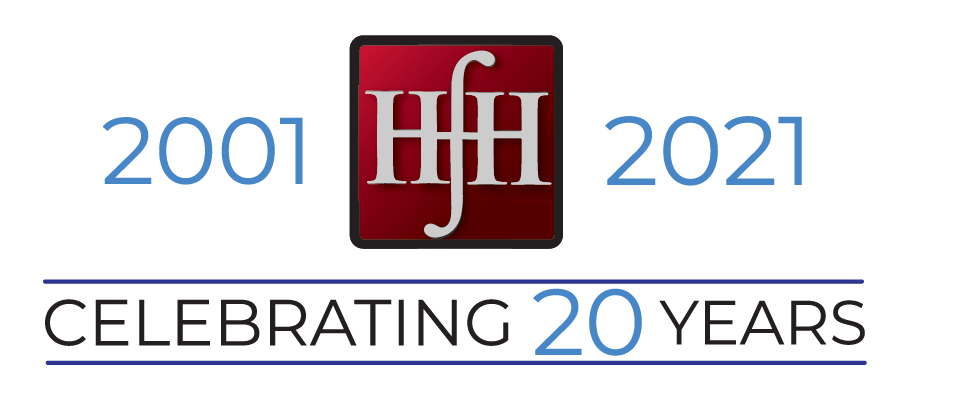Is anything holding you back before you begin your job search? The time will come for networking, sending in applications, and scheduling interviews. But first, take time to evaluate these seven critical personal dashboard indicators.
Last year, we hit the road to visit family in Oregon. At one point along the way, I started the car and saw that mysterious “check engine” red light turn on. Not good. The timing wasn’t great, but I knew it made sense to put our driving plans on hold for the day and call the local mechanic.
Red lights on your car dashboard warn of serious trouble. Likewise, life comes with its own indicators that signal whether we’re OK to proceed, or if we need to stop for some maintenance. Ignore the flashing red lights in your life, and you won’t get very far or arrive at your ideal job destination.
A job transition can force us to stop and think about life. Absent the full calendar and mental clutter that accompany steady work, we are forced to slow down. It is a great time to stop and ask, “What should I be learning right now?” If you just rush to update your resume, you may miss a bigger opportunity for new growth and insight that could positively impact your life.
Is your dashboard green, yellow, or red?
As you read through the following seven job search dashboard indicators, conduct a quick self-analysis. Consider the question at the end of each section and assign yourself a status: red, yellow, or green:
- Green: This area is fine and healthy
- Yellow: This issue could use some work, but it’s not critical
- Red: This reveals something unhealthy that is really impacting you.
After you complete the exercise, I would encourage you to focus your energies on addressing the red indicators, since these tenuous areas could negatively impact your job search and your life.
In working through this material with hundreds of people, I’ve found that most people have at least one red indicator holding them back on the job search. If you encounter hard truth, I encourage you to lean in, be honest with yourself, and use this quick personal assessment as a chance to get healthy and correct your course.
1. IDENTITY: A sense of personal meaning, value, and worth
When someone asks, “What do you do?,” how do you answer? When you talk about your job, do you feel overly proud or especially bummed out? Do you worry about what others think of you based on your job?
We spend so much time at work, it’s no wonder that our job tends to define us as a person. Paying the bills, commuting, getting ready for the day, and being at the office—all of these contribute to the feeling that our jobs rule our lives. But if we let work rule over us in this way, like some kind of god, we become miserable, depressed, exhausted, lonely, and stressed.
A job is a really good thing, but it’s not the ultimate thing. I encourage you to find a sense of identity and meaning in something bigger and more important than work, something that gives you strength and peace of mind with or without a job.
Check your dashboard: Do you find identity, meaning, and worth outside of your job?
2. TRUST: A source of hope and assurance
When life is running fine, it’s easy to believe we can handle pretty much anything on our own. We like to be self-sufficient and in control. We don’t think we need anyone else in our life, as if independence were a sign of strength.
A job search can shake us up by challenging our source of strength, wisdom, purpose, and answers. We need more help than we realized before. During seasons of change and uncertainty, it’s helpful to focus on what you know to be true and trustworthy. Who or what can you count on? Your family? Your friends? Your faith? Other blessings in your life? Such reminders can reset your resolve and provide a solid foundation for the stormy job search ahead on what is most important.
Check your dashboard: Are you leaning on the foundational truths in your life for strength and encouragement?
3. PEACE: A feeling of calm over anxiety
A job change impacts every aspect of life, especially if you have a family who depends on you. Do you feel worried and anxious about the job search? If so, you are not alone. Many people feel unsettled during career transition.
Worry and anxiety, however, can destroy your job search by provoking short-term, reactionary thinking. Interviewers can sense when someone is anxious and not at peace, which can come across as desperate and insecure.
When you feel fear and anxiety cropping up, I encourage you to:
- Remember that FEAR stands for a Frantic Effort to Avoid Responsibility. Is there something you should take responsibility for and do right now?
- Recall the things you trust in, and feel gratitude for the things going well in your life.
- Realize that you cannot control everything in the world and in your life, but some things you do have the power to control. Small wins in these areas can quickly build momentum.
- Revisit things that have given you peace of mind, joy, and rest in the past, and do what you know works.
A season between jobs can actually be a great time to look back and make a plan for a better life. Many people have told me they were grateful for a change because it freed them up for something better. Try to look at this time as a gift, and a “personal retreat” to invest in yourself and your future.
Check your dashboard: Do you feel a sense of peace in the journey ahead?
4. MONEY: A necessary and often stressful part of life
Money is the primary reason most of us go to work. Even if you love your job, you’d probably stop showing up as much if you didn’t get paid.
Money is a great tool, too, to get things we need and want. But when we place too much emphasis on money, it can lead to painful problems for us and those we care about. Obsessing over money clouds our ability to think clearly, which can lead to reactionary career decisions, such as taking the first job that comes up. Living month-to-month with no savings and high debt can cause this sort of job search panic.
Our spending habits and perspective on money reveal a lot about what we value and care about most. Almost half of all Americans can’t afford to miss a paycheck, and consumer debt seems to hit an all-time high each year. Struggling with personal finance is a national pastime. As difficult as it is to cultivate a healthy perspective on money, this essential discipline will alleviate much stress.
A job search reveals our financial health and views of money. Obviously it will help financially once you land the next job, but this could reveal the need for added discipline in spending, budgeting, and maintaining a healthier view of money. With financial discipline, you can also bless people around you with generosity. Money can rent happiness, but it can’t buy true joy in our lives.
Check your dashboard: Do you have a budget and spend less than you make? Do you view money in a healthy way?
5. COMMUNITY: People you can go to for help, encouragement, discussion, and friendship
During a job search, people tend to retreat from friends and others who care about them most. There are a few internal lies and negative self-talk that can happen when it comes to having other people help you during this time. Any of these statements sound familiar?
- “I need to be self-sufficient. I don’t want to be (or feel like) a burden on others.”
- “People will judge me or think less of me because I don’t have a job.”
- “My friends are busy. They probably don’t have time to help me right now, and I don’t want to bug them”
True friends and family love you and care for you because of who you are, not because of the job you have. They care about you and would love to help out, but you may need to tell them how.
A job search is a great time to ask for help, seek encouragement, and reconnect with people you have not seen for awhile. It’s a good search strategy to engage a broader network of people, but it’s also good for the soul.
Check your dashboard: Have you reconnected with friends to ask for their help and encouragement?
6. HEALTH: Energy level and physical fitness habits
A successful job search is a marathon that requires your full health and energy. Are you taking care of your health? You know the drill: Eat healthy food, move more, get more sleep, drink more water, and take your daily vitamins.
You wouldn’t pour sand into your car gas tank, right? Our bodies are finely tuned machines that respond positively or negatively to how we treat them. A job search is a great opportunity to hit “reset” and get back to healthy habits that you can hopefully continue after landing the new job.
Likewise, focus on energy management, which is a balance of physical, emotional, and spiritual health. Some things drain you and some things fill you back up. You need enough positive inputs to balance things out.
When you are healthy, you’ll feel better. This vitality will be evident in the interview. You’ll make a better first impression, and you’ll be mentally sharper, which can make a big difference for a competitive role.
Check your dashboard: Do your current health habits and energy management strategy support your job search?
7. ORGANIZATION: Order in chaos
Some people have the natural gift of organization. For the rest of us, getting organized is more of a challenge that we need to work at.
Take responsibility, plan ahead, prepare to track your job search, and you’ll experience less stress and better results. Things can get busy and confusing quickly if you don’t have a system and if your desk and computer are cluttered.
Being disorganized can hurt. You don’t gain a competitive advantage when you forget appointments, neglect to next steps, fail to follow-up on referrals from friends, or arrive late to your interview without your prep notes. Healthy organizational habits will make your job search ordered and manageable.
Check your dashboard: When you look at your desk, computer, and job search tools, is it organized like you want?
Congrats, your diagnostic is complete! Some sections will be easy and some may challenge you. Hopefully, this quick self-assessment gets you to stop and think about a few important matters, and triggers some ideas of things to work on. As yourself, “What should I be learning through this experience?”
For more helpful job search tips: Ultimate Job Search Guide: Recruiter Insider Tips



